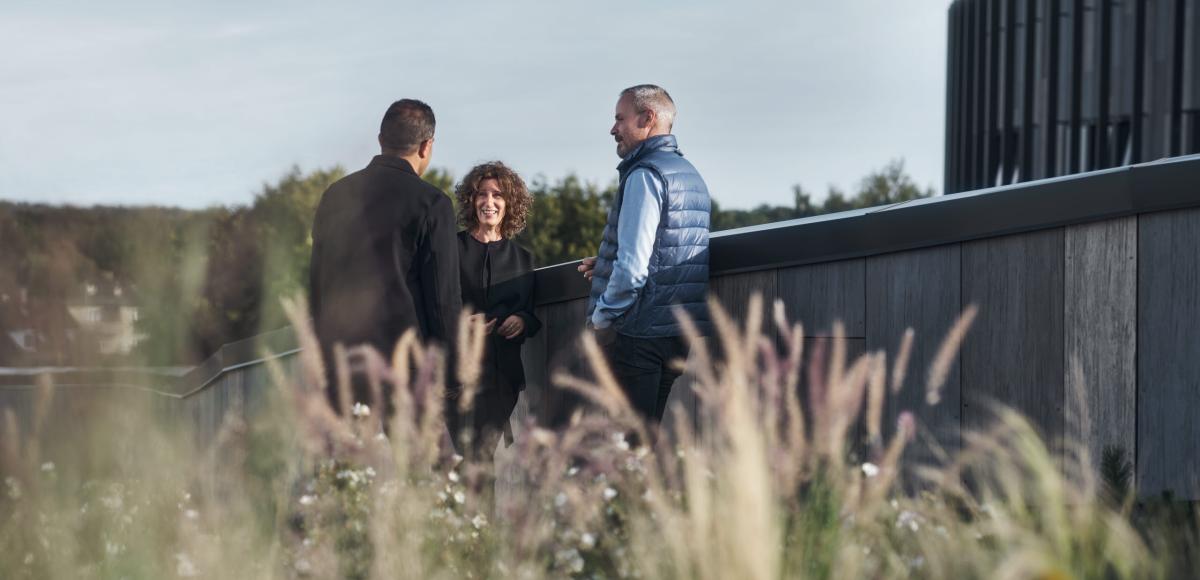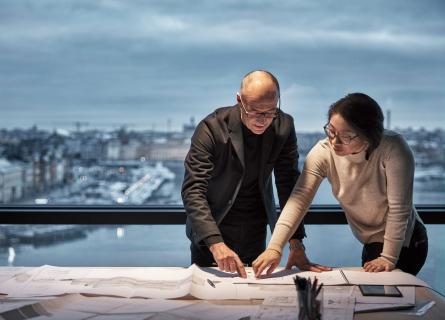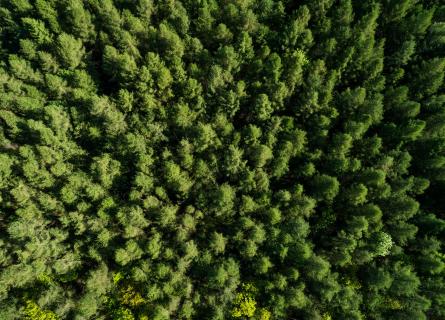
Can we make the sustainability transition happen?
Companies can only succeed with leading expertise, and the same holds true for the sustainability transition.
If professionals lack the required proficiency to make the change happen, society, companies and other organisations will likewise suffer from a competency shortage.
Written by Nani Pajunen
Many years ago, before circular economy became as crucial as it is today, I led an R&D project in which multiple Finnish industrial companies participated. During this project, I also organised some workshops, one of which was at a large mechanical engineering company. Its goal was to develop the responsibility and sustainability of a particular product, and the focus was on finding and developing circular economy solutions for material and product development phases.
When I invited employees of that company to the event, they suggested that I could conduct the workshop together with the experts of the sustainability team. I warmly invited them to the workshop and asked various other experts to join, including material developers, project managers in charge of the product development process, communication specialists, marketing and sales professionals and business development managers.
We worked together for a day to devise ways to consider circular economy in product development better. This would concern both the product and material development phases and communication, marketing and subcontracting processes. A material developer’s decisions at the beginning of a product life cycle will decisively affect how recyclable the material will be at the end of the life cycle. Likewise, a product developer can affect how well a given product can be repaired and maintained and opt to use components remanufactured in a factory. However, if this development work is invisible to marketing, communications and sales, how could they put the company’s role and actions for the sustainability transition into words? More importantly, how could they communicate these crucial solutions to the clients?
The capabilities of any given large company to accelerate the sustainability transition are significant. The more sustainability criteria can be fitted into tenders, the more companies in the market will start to develop them. Alternatively, the more sustainable products and components are available in the market, the easier it becomes to acquire them.
During the day, I saw participants awakening and understanding the situation via a new kind of collaboration.
Marketing to the product developer:
Why didn’t you tell us that product development were considering improving the recyclability of the materials and reuse of components for a long time?
Communication to sales:
We have to tell the story about material development. Feel free to use it when selling this product that’s more responsibly produced than ever, and we can also promise that it has a longer service life than our previous products.
Sustainability expert to the business development director:
See how much material we could save after changing the production process.
Here is the core of the matter, which is also the most difficult one to solve – how can we make cooperation and communication within the organisation work, and do we all have a common understanding of the objective we are working towards?
Building a sustainable future
In the accelerator session of the World Circular Economy Forum, Building a Circular Environment, I asked the participants, all of whom were circular economy designers, about:
- Their backgrounds
- The kind of expertise they utilise in their work
- What skills do they need, and how they would like to develop as professionals
- What kind of education these professionals would like to have
Professionals from all over the world attended the event. There were landscape and regular architects, urban planners, civil engineers, sustainability experts, professors, historians, life science experts/biologists, political scientists, developers, consultants, civil servants and students. They came from the public, private and third sectors, and almost all said they work in circular economy. Most of them had an academic education, several doctors included. Some of these people had acquired additional knowledge through various courses, seminars, conferences or research. Still, many clarified that they had become circular economy experts by doing practical work – learning by doing. They also named common sense articles on various communication channels as a way of learning.
When asked about the skills they use in their work, their answers formed a comprehensive picture of the diversity of approaches to the sustainability transition and what kind of skillsets are required. They named systemic change, patience, research, creativity, agility, flexibility, practical sense, negotiation skills, tactical understanding, diplomacy, political knowledge, advice, sales skills, business know-how, experience, presentation skills, material skills, skill building, legal knowledge, strategic skills, management, change evaluation and monitoring, risk assessment, skill adaptability, data processing and, of course, industry skills such as design and construction.
I also asked them about the skills these circular economy builders would need in their work and how they want to develop professionally. Their answers were as vast and multifaceted as the skills currently in use, including business models, legislation, new technologies, tangible feel of materials, certifying new recycled materials, commercialisation, finding and using data, innovation, collaboration, multidisciplinarity, visualisation, finance, material flow analyses, sustainability assessment and monitoring, value network competence, standardisation, management, material science, transparency and traceability, behavioural sciences, change management, digital solutions and entrepreneurship.
Finally, I inquired about the kind of education and training these experts would like. Many said that they would continue their academic studies. Among the topics mentioned were material sciences, finance, business, biochemistry, life cycle assessment, trade, different construction areas, urban ecology, communication, material management, design, circular economy, machine learning and artificial intelligence, reporting and chemistry. Many wanted to learn through practice and needed pilot projects and examples. In addition, someone also seemed to have noticed the challenges of the sustainability transition in their work through wanting to learn boxing, as their shoulders were stiff from excessive desk work.
Are you making a sustainable future?
The sustainability transition is all about societal change. As in the workshop mentioned above, everyone found their own angles for developing mechanical engineering products in a more sustainable direction. The same holds true on a societal scale. All sectors of society need professionals that recognise where change is necessary, and we all have a mission to find and develop solutions with which we can start to make the transition happen. In this change, it isn’t enough that there are environmental experts present. Everyone has a role, from road builders to lighting designers of the premises and from store warehouse workers to sales directors and municipal urban planners.
However, the sustainability transition requires even more, which we can only accomplish through cooperation. We can only speak about systemic change if we are aware of what our neighbours are doing. Otherwise, the change would only revolve around ourselves.
We must learn to link our own doing to what others do in society even better. The different dimensions of the sustainability crisis are interconnected – using natural resources causes 90% of the loss of biodiversity, and climate change accelerates this trend for its part. Industrial processes produce the majority of carbon dioxide emissions, and our consumption habits fuel the vicious circle. Correspondingly, the solutions are associated with each other. Building the infrastructure of the green energy transition requires mineral resources, the same ones that are also needed for smart devices. Hydrogen solutions require increased electricity generation. In a nutshell, everything is connected.
We have awakened to the sustainability crisis and set ambitious objectives for carbon neutrality and safeguarding biodiversity. The carbon neutral circular economy is one of the solutions for the sustainability transition. Succeeding with the change requires that we move from individual circular economy skills to community circular economy skills.
To summarise, we need novel skills and capabilities to broadly collaborate over industry boundaries. Business executives worry about having access to a capable workforce, and I agree with them – the sustainability transition requires expertise likewise. Incompetence hinders change and achievement of the objectives set for carbon neutrality and biodiversity. Sustainable solutions and circular economy expertise are immensely sought after worldwide. Business executives must be interested in the fact that the sustainability transition and the solutions it requires can significantly boost the competitiveness of their companies.
We all have a role to play in bringing the sustainability transition to life and can use our core expertise in making change happen. What is your core field of expertise? Hold onto that and think about how you could accelerate and reinforce the sustainability transition in your work.
About the author
The author, Nani Pajunen, is a sustainability transition and carbon neutral circular economy expert at The Finnish Innovation Fund Sitra, who has close ties and collaborates with the Sustainability Consulting team of AFRY Management Consulting. She has never studied circular economy but natural and material sciences, environmental law and pedagogy. Nani has a vision and goals towards which she proceeds in her work and she utilises all skills she has accumulated in her studies and career to get there.





